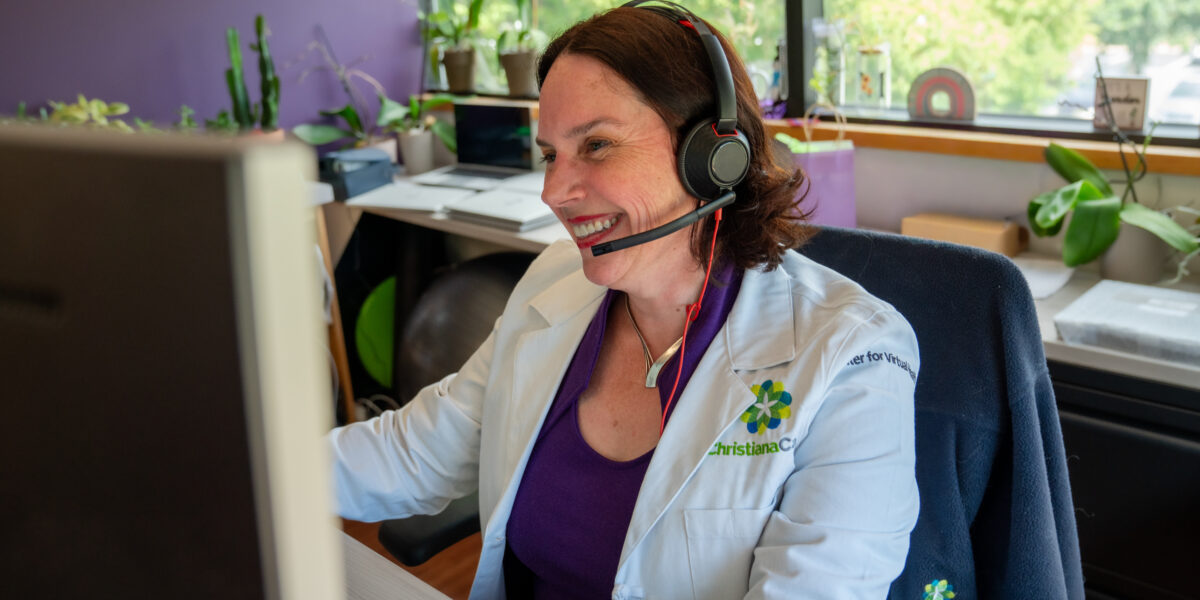Login
Multiple Sclerosis
Patient Education
Learn more about conditions which affect the brain and nervous system.
Conditions Treated
Multiple Sclerosis (MS)
The cause of MS is unknown and MS is different for each person. Although there is no cure yet, there are disease modifying therapies (DMTs) that can help. DMTs are treatments to delay, change, or interrupt the natural course of the disease. For MS, this means taking medicine over a long period of time to reduce the number of attacks and how bad they are. It is also important to follow a healthy lifestyle.
Research
ChristianaCare MS Comprehensive Center of Excellence is committed to better understanding multiple sclerosis. This includes causes, triggers, and related disorders. We are involved in clinical trials that will improve quality of life for those living with these disorders. Currently, we have 3 types of trials:
Diagnosis
There are nearly 1 million people with MS in living in the United States and it can appear at any age. It’s one of the most common health problems affecting the brain and nervous system.
Confirming an MS diagnosis involves a review of medical problems, imaging studies, and laboratory testing. Other health problems that can also look like MS must be excluded. Laboratory, imaging, and studies that may be done to help diagnose and manage MS include:
Treatment
ChristianaCare MS Comprehensive Center of Excellence includes highly trained clinicians who are experts in the care of MS. Different treatments are available to delay, change, or interrupt the natural course of the disease. Using a team approach, we guide patients through different treatment options during all stages of life. Our team teaches patients and their families about medicines and how to best manage symptoms.
There is no known cure for Multiple Sclerosis. However, there are treatments that may limit new disease activity that may help, control, or prevent symptoms of MS. Different types of medicines can be used as a part of the treatment plan and to help manage your symptoms. We also offer rehabilitation services to improve the overall well-being for people living with MS.
Treatment for Acute Relapses
A new and sudden attack can be called an acute relapse. The goal in treating an acute relapse is to promote faster recovery. While treatments for acute relapses can help the patient recover faster, they may not make as much a difference in the overall recovery. Therefore, not all MS relapses are treated right away.
Steroid medicines are commonly used during new attacks. Sometimes, infusions such as plasmapheresis or IV immunogloblulins (IVIG) are also used.
Brain & Nervous System Conditions
Neuromyelitis Optica (NMO) Spectrum Disorder
Neuromyelitis optica spectrum disorder is a group of central nervous system (CNS) diseases. Similar to multiple sclerosis (MS), NMO is an inflammatory disorder of the brain and nervous system. NMO affects more women than men and it can occur at any age. However, if often begins in the 30s or 40s. NMO is considered rarer than MS.
NMO relapses are more severe than MS relapses and people could experience disability if relapses occur. The purpose of treatment for NMO is to prevent further relapses and disability.
NMO Spectrum Disorder Treatment
At ChristianaCare, the main goals of NMO therapy are to prevent future relapses and help you feel as well as possible. Therapy options for NMO are different from MS. Some MS therapy may actually make NMO worse. There are currently 3 medications that are FDA approved to treat NMO spectrum disorder. Currently, there are three FDA- approved medications for those with the aquaporin-4 antibody.
Myelin Oligodendrocyte Glycoprotein (MOG)-Antibody Associated Disease
Myelin Oligodendrocyte Glycoprotein Antibody Disease (MOGAD) is an inflammatory disease of the brain and nervous system, though it is different from MS. It is very common in pediatrics but can occur in adults.
Unlike other neuroinflammatory disorders. MOG disorders affect men and women almost equally but are more common in children than adults. Compared to similar disorders, MOG disorders can be less aggressive and may come back, or you could only experience one MOG episode. These types of relapses could have long-term effects on the central nervous system (CNS), including walking and vision challenges.
MOG Antibody Associated Disease Symptoms
MOG could manifest is through a condition called acute disseminated encephalomyelitis (ADEM). It affects children under 10, ADEM is more common in pediatrics than adults. In many cases, ADEM could occur just one time, but it can occur more than once. ADEM can cause:
Providers
Contact Us

ChristianaCare Neurology Specialists at Newark
200 Hygeia Drive, Suite 1420,
Newark, DE 19713

ChristianaCare Neurology Specialists at Whitehall
735 Mapleton Ave
Middletown, DE, 19709

ChristianaCare Neurology Specialists at Wilmington Hospital
501 West 14th Street
Gateway Building, 5th Floor
Wilmington, DE 19801

